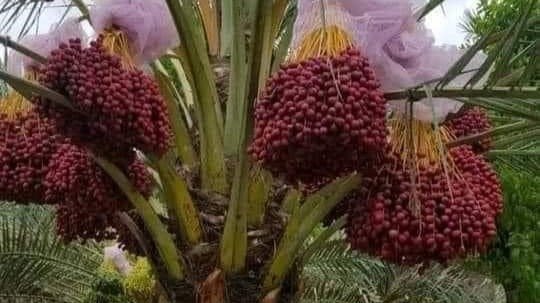Dates are sweet fruits, pleasant to the taste, which is why they have won the favor of many people, especially children. On the Romanian market, these fruits are mainly present in the form of dried dates.
Like any other fruit, dates have their own world full of curiosities just waiting to be discovered:
A mature palm tree produces, per season, up to 180 kg of dates.
Dates grow in bunches, ending up containing an impressive number of fruits. A bunch of dates contains from 600 to 1700 dates. How many people would it take to eat such a bunch?!
Dates are real energy factories. Thus, 100 grams of dates provide 275 calories, which represents 11% of the daily energy requirement for an adult man engaged in a medium-intensity physical activity.
Dates are also an excellent source of dietary fiber. Fiber plays an important role in protecting the digestive tract, acting as "sweepers" that help expel waste and unwanted substances from the body. In addition, dates contain no less than 15 minerals, including selenium. Selenium is a powerful antioxidant that helps you stay younger and healthier. The most expensive variety of dates are medjool dates. Why? It is the most difficult to grow.
Devout Muslims in Muslim countries end their fast by eating dates and water. Why do they do this? After you have gone through a severe fast it is very risky to suddenly go into a regular diet. It is much wiser to make the transition to regular eating gradually.
The palm that produces dates can reach the venerable age of 100 years. And in height it can reach up to 30 meters.
The fennel (an obsolete synonym for the date palm) is mentioned over 30 times in the Bible.
The Jews of ancient biblical times really loved dates, even naming their daughters after them:
"Judah took his firstborn, Er, a wife named Tamar." Genesis 38:6 Tamar means dates!
Dates are traditionally used to soothe dry coughs and relieve bronchitis
